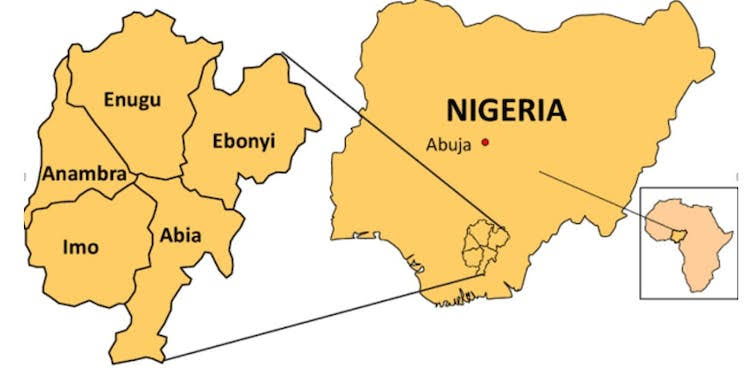Deputy Speaker of the House of Representatives, Hon. Benjamin Kalu, Friday, said that about N4 trillion has been lost to the stay-at-home problem in the south east region within the last 2 years.
He said that the situation observed every Monday in the region with the 5 States of Abia, Anambra, Enugu, Ebony and Imo has crippled businesses and also stifled opportunities for economic growth.
Delivering a keynote address at the “All Markets Conference 2023” with the theme: “Catalysing Partnership with Traders through Innovation, Technology, Analytics & Sustainability” in Lagos, the deputy speaker said the situation had forced potential investors out of the south east.
Kalu who noted that violence was alien to region therefore called for a collective efforts by all Igbo sons and daughters to end the menace.
He said, “The existential threat to Igbo entrepreneurship and businesses now is the insecurity and sit-at-home problem in the south-east. The mutation of this
problem is largely unfathomable. It is becoming a cankerworm that is eating
deep into our collective fortune as a people. We have to rise up to nip the
problem in the bud. The first wave of the migration of Igbo businesses post-civil war was in the late 1980s and the 1990s, when, due to incessant kidnappings, thievery and a rise in occultism, Igbo businesses domiciled in Igboland moved
en masse to other parts of Nigeria and the west & central African region to
thrive. We are currently witnessing the second wave of such migration of Igbos businesses, this time around, due to the insecurity and the sit-at-home problem in our beloved region. Ummunnem, this is not us. We are not known for these. If I do not tell you these truths as your son, then it will be difficult for anyone in governance from Ala-Igbo to tell you. I am pained by what our dear land has become. We have to be honest and sincere with ourselves. In conclusion, I make a heartfelt plea to each and every one of you.
“We cannot afford to retreat from our business endeavors. The stay-at-home order on Mondays has resulted in staggering losses of 4 trillion Naira in the last two years in the Southeast alone according to statistical data. This is also affecting the businesses of our brothers across Nigeria especially in the supply-chain. We must find lasting solutions to the security challenges in Igboland, addressing them collectively with innovative strategies. My brothers and my sisters. We must think and think again!”
Emphasizing that the constitution of Nigeria guarantees freedom of movement, Kalu however urged Igbo people resident outside their region to live in peace with their host communities.
“While we strive for success and growth, we must also address the threats faced by Igbo businesses across Nigeria. I want to emphasize here that our
constitutional rights protect us. Section 41 sub-section 1 of the 1999
Constitution guarantees every citizen of Nigeria the freedom to move, reside, and trade anywhere within the country. This constitutional backing supports our business endeavors, as long as we contribute positively to our host communities and maintain peaceful and friendly relationships.
“In this spirit, let us remember the longstanding harmonious relationship
between the Yorubas and the Igbo, especially in Lagos and other parts of
the Southwest. We have come a long way together, both economically and
politically. We can draw inspiration from past collaborations, such as Sir Louis Odumegwu Ojukwu’s role as the founding president of The Nigerian
Stock Exchange in Lagos, and the partnership between Nnamdi Azikiwe
and Sir Herbert Badmus Macaulay during the glory days of the then
National Council of Nigeria and the Cameroons (NCNC)”, he said.
Deputy Speaker also called for the revival of Igbo apprenticeship system, a time tested practice which he said had produced successful business men and women, stressing that it should not be allowed to go into extinction.
“I want to draw your attention to a remarkable aspect of our economic
history—the “Igba-Boi” Apprenticeship System otherwise called the Igbo
Apprenticeship system by Business and Economics experts worldwide. This time-honored tradition has played a pivotal role in the growth of capital formation in Igboland, especially during the challenging post-civil war recovery period.
“It is a system that has been studied extensively by renowned institutions such as Harvard Business School, with business cases dedicated to showcasing its unique merits in top business schools worldwide. Today, it stands as a shining example of excellent venture capital in the world. However, let us pause for a moment and ask ourselves a rhetorical question: How many of us in this conference still have apprentices?
Perhaps a few. As we reflect on this, we must acknowledge that the “Igba-Boi” apprenticeship system is going into extinction, but we must be innovative in our approach to revive and sustain it. We cannot afford to let this invaluable heritage fade away, for it carries the seeds of our future prosperity.
“This draws down to another important question we must ponder on – should we formalize the Igba-Boi Apprenticeship system? What I mean here is whether a national apprenticeship system should be set up that adopts the core element of the Igba-Boi apprenticeship system and combines it with the conventional education system in Nigeria to optimize the benefits for our teeming youth. This is why my office is open to you all umunnem! Please feel free to come
and engage in this fruitful discourse as we look for the way forward to advance a core element of our rich economic and business practices and ensure that it is sustainable for future generations.
“Ummunem na Umunnam, Igbo bu Igbo, let me assure you that as the Deputy Speaker, working with my colleagues from the South East in the National Assembly are committed to this task in the next four years of the current administration. Together, we will work towards an inclusive and prosperous Nigeria”, Kalu added.












